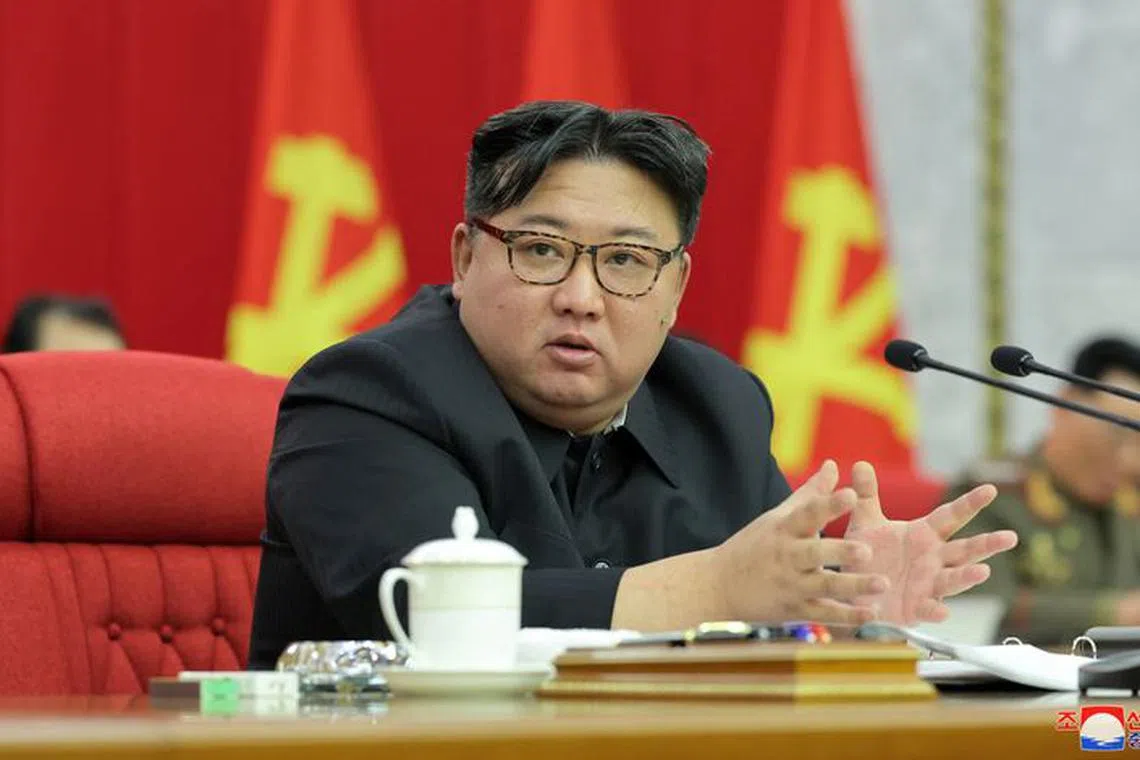North Korea’s Kim warns that failure to provide food is a ‘serious political issue’
Sign up now: Get insights on Asia's fast-moving developments

North Korean leader Kim Jong Un urged his party to bring about a swift change to raise the living standards of people throughout the country and close the gaps between urban and rural areas.
PHOTO: REUTERS
SEOUL – North Korean leader Kim Jong Un has called for ways to be found to improve economic development after saying that failure to provide people with basic living necessities including food is a “serious political issue”, state media reported on Jan 25.
He made the remarks while discussing regional development in a speech at the 19th Enlarged Meeting of the Political Bureau of the Eighth Central Committee of the Workers’ Party of Korea, the country’s ruling party, held from Jan 23 to 24, according to KCNA.
North Korea has over recent decades suffered serious food shortages, including famine in the 1990s, often exacerbated by natural disasters such as floods damaging harvests.
The food situation in North Korea was “still bad” despite an uptick in trade with China, South Korea’s unification minister, who is charged with handling relations with its neighbour, said in 2023.
Mr Kim also urged his party to bring about a swift change to raise the living standards of people throughout the country and close the gaps between urban and rural areas through its new regional development policy.
He had announced the policy at a Supreme People's Assembly meeting earlier in January.
“The overall regional economy is in a terrible situation without elementary conditions and there are severe imbalances and huge gaps between regions in terms of their geographical circumstances, economic potential and living circumstances,” Mr Kim was quoted as saying.
“We should not sit by and wait till the situation and conditions turn favourable, but find more jobs, to be faithful to our duty for the sake of the people.”
North Korea, which is under strict international sanctions over its banned weapons programmes, came under further economic pressure during the pandemic when its limited border trade was virtually choked off by self-imposed lockdowns aimed at preventing the spread of of Covid-19. REUTERS


